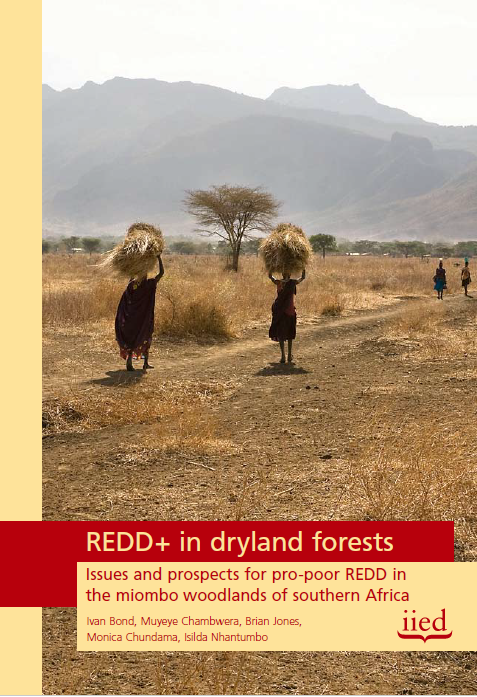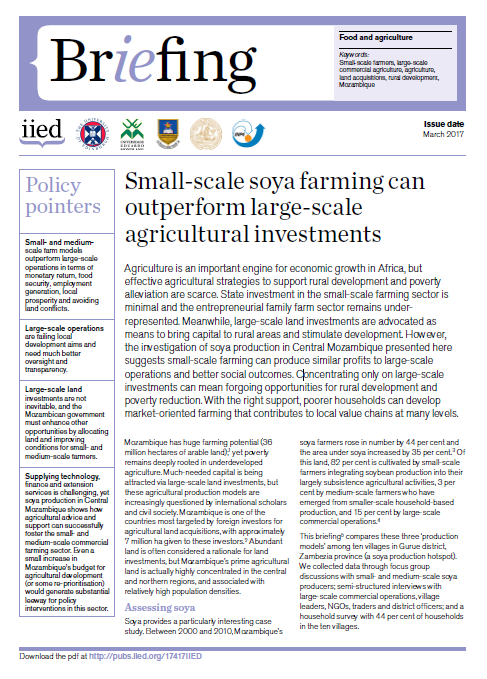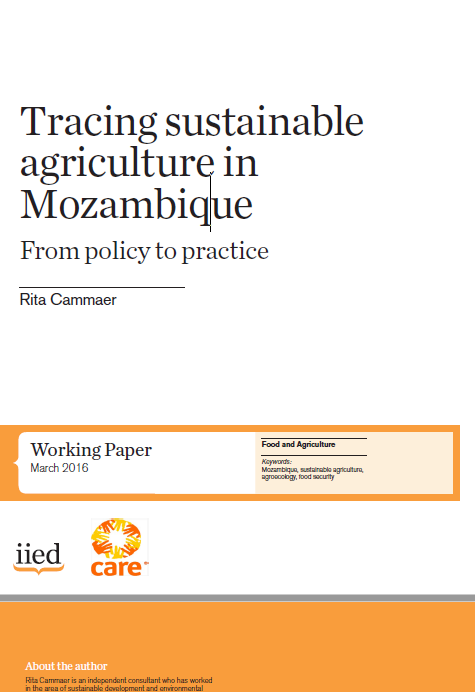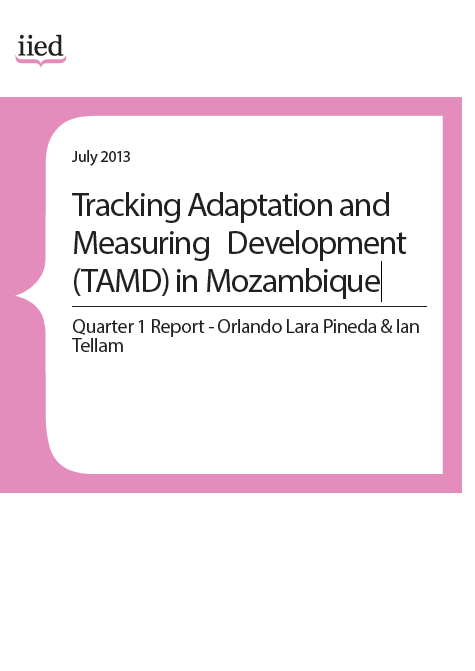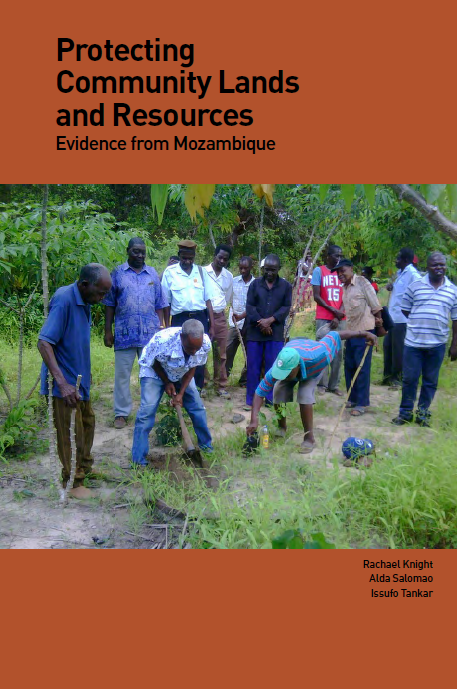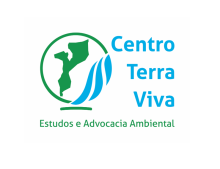
Topics and Regions
Details
Location
Contributions
Displaying 21 - 30 of 223REDD+ in dryland forests
For two reasons the miombo woodlands of eastern and southern Africa provide an important opportunity for developing pro-poor payments for avoided deforestation and degradation. Firstly, there is strong scientific evidence that the loss of woodlands is associated with a decline in livelihoods. Secondly, there are two decades of successful community-based natural resource management (CBNRM) in the miombo region.
Small-scale soya farming can outperform large-scale agricultural investments
Agriculture is an important engine for economic growth in Africa, but effective agricultural strategies to support rural development and poverty alleviation are scarce. State investment in the small-scale farming sector is minimal and the entrepreneurial family farm sector remains underrepresented. Meanwhile, large-scale land investments are advocated as means to bring capital to rural areas and stimulate development.
Understanding carbon loss and potential interventions in Manica, Mozambique
Understanding how land use and its changes affect forest cover and carbon stocks is fundamental to developing sound REDD+ delivery options. A study in Manica Province, a REDD+ pilot area for Mozambique, suggests biomass and forest carbon fell substantially between 2007 and 2010. The study combined radar remote sensing information (to measure changes in biomass and carbon stocks) with field investigations (to establish land use and land cover changes, and their causes). Small-scale agriculture is responsible for nearly half of the loss.
Tracing sustainable agriculture in Mozambique
This study examines the agricultural policies and strategies that have influenced agricultural development in Mozambique, the support structures that have been put in place, and the realities and challenges of their implementation. It was found that key stakeholders understand the concept of sustainable agriculture, that the most important contributing components are covered in the current policy framework, and that farmers are keen to adopt and adapt to more sustainable and profitable farming practices.
Tracking Adaptation and Measuring Development (TAMD) in Mozambique
Mozambique is the 8th most vulnerable country to climate change and is one of the poorest countries in the world with a high dependency on foreign aid. The population is primarily rural and dependent on agriculture, with 60% living on the coastline. Droughts, flooding and cyclones affect particular regions of the country and these are projected to increase in frequency and severity.
Recognizing Rights to Natural Resources in Mozambique
After a number of constitutional amendments in 1990 had introduced the need to revise the legal framework for land and natural resources1, the government of Mozambique embarked upon a rather piecemeal process to develop a new policy and institutional framework for natural resource management. The main pillars of this framework consist of various pieces of legislation dealing with specific natural resources, such as the Land Law, the Forestry & Wildlife Law, the Mining Law and their related regulations and annexes.
Protecting Community Lands and Resources
Mozambique currently has one of the highest rates of land concessions throughout Africa. In the coming years, if large-scale land concession grants to private investors are not carefully controlled, the amount of land still held and managed by rural Mozambicans will decrease significantly, with associated negative impacts on already impoverished rural communities.
Abrupt Changes in Ecosystem Services and Wellbeing in Mozambique (ACES)
ACES is a three-year (2014 -2017) research project that is being implemented in Mozambique with the main purpose being to contribute to poverty alleviation in Mozambique by co-producing new knowledge of the dynamic links between land use change, Ecosystem Services (ES) and the wellbeing of the rural poor and thereby meet the demand from policy makers and practitioners for ways to better manage Mozambique’s woodlands (Dewees et al. 2008; Wiggins et al. 2012).
Forest Governance Learning Group
Social Justice in Forestry – as a project of FGLG with funding from the EC – supported the Mozambique Forest Governance Learning Group (FGLG-Mozambique) from January 2009 to December 2013, building on a first phase of EC support from April 2005 to December 2008 and an even earlier phase of work funded by DFID that started in 2003-2004.
South-South REDD
The implementation of the South–South REDD process was made achievable by those who assumed leadership roles (political and technical), facilitated the meetings and the logistics on the ground (especially the consultations and training) and acted as resources people. It would be impossible to name everyone, but in particular we would like to thank the Minister of Environment, Alcinda Abreu, and Vice-Minister, Ana Chichava, who provided the leadership and often challenged the technical experts.

